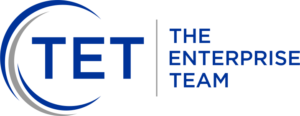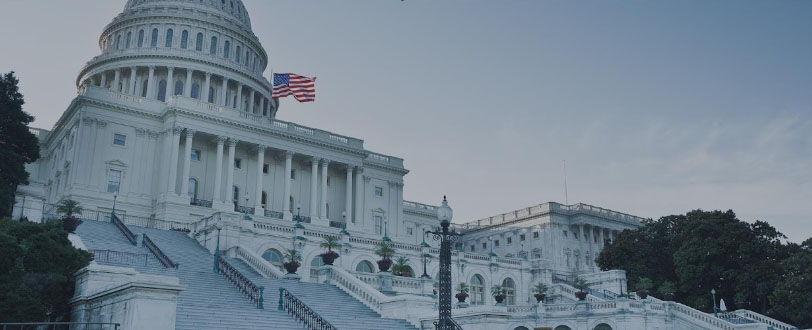PCORI FEE DUE DATE APPROACHES
Employers offering self-funded medical plans, including health reimbursement arrangements (HRAs) must report and pay fees to the Patient-Centered Outcomes Research Institute (PCORI) by July 31. If the plan was fully insured, employers can rely on their insurance carriers to handle the fee payment.
The current annual fees are:
- For plan years that end on or after Oct. 1, 2021, and before Oct. 1, 2022, the indexed fee is $2.79.
- For plan years that end on or after Oct. 1, 2022, and before Oct. 1, 2023, the indexed fee is $3.00.
Self-funded plans have three options to determine the average number of covered individuals for reporting and paying the PCORI fee: (i) actual count method, (ii) snapshot method, or (iii) Form 5500 method. There are special rules for counting if employers offer multiple self-funded plans or have an HRA integrated with a fully insured plan. Additional information and payment instructions are available.
MHPAEA OPT-OUT EXPIRES
The Centers for Medicare & Medicaid Services (CMS) has issued guidelines regarding changes to the Mental Health Parity and Addiction Equity Act (MHPAEA) for self-insured non-federal governmental health plans.
The Mental Health Parity and Addiction Equity Act of 2008 (MHPAEA) requires group health plans and health insurance issuers to ensure that financial requirements (such as co-pays, deductibles) and treatment limitations (such as visit limits) applicable to mental health or substance use disorder (MH/SUD) benefits are no more restrictive than the predominant requirements or limitations applied to substantially all medical/surgical benefits.
The new guidelines state that these health plans cannot choose to opt out of complying with the MHPAEA if they have not already done so by December 29, 2022. Additionally, any existing opt-out elections that expire 180 or more days after that date cannot be renewed.
However, there is a special rule for certain health plans that are collectively bargained. If a self-insured, non-federal governmental plan is subject to multiple collective bargaining agreements (CBAs) of different lengths and had an MHPAEA opt-out election in effect on December 29, 2022, which expires on or after June 27, 2023, the plan can extend the election until the last CBA expires. To do so, the plan needs to follow a specific process, including providing documentation of the effective date and duration of existing CBAs to CMS, obtaining CMS approval, and submitting a renewal opt-out election to extend the plan’s existing election.
The guidelines also emphasize that CMS has the authority to take enforcement action, such as imposing civil money penalties, against non-federal governmental health plans that do not comply with the MHPAEA requirements.
PREGNANT WORKERS FAIRNESS ACT GOES INTO EFFECT
Part of the Consolidated Appropriations Act, 2022, effective June 27, 2023, the Pregnant Workers Fairness Act (PWFA) requires employers with 15 or more employees to provide reasonable accommodations for job applicants and employees with known limitations related to pregnancy, childbirth and related medical conditions. The PWFA covers only accommodations and does not replace federal, state, or local laws that are more protective of workers. Existing laws enforced by the Equal Employment Opportunity Commission (EEOC) protect workers from discrimination or termination based on these conditions.
Reasonable accommodations must be made unless the accommodation would impose an undue hardship on the employer’s business operations.
Covered employers cannot:
- Require an employee to accept an accommodation without a discussion about the accommodation between the worker and the employer
- Deny a job or other employment opportunities to a qualified employee or applicant based on the person’s need for a reasonable accommodation
- Require an employee to take leave if another reasonable accommodation can be provided that would let the employee keep working
- Retaliate against an individual for reporting or opposing unlawful discrimination under the PWFA or participating in a PWFA proceeding (such as an investigation)
- Interfere with any individual’s rights under the PWFA
The EEOC will issue proposed regulations for comment before the final regulations take effect.
RXDC REPORT DUE TO CMS FOR 2022
The deadline for group health plans and plan issuers to submit information about prescription drugs and health care spending to the Department of Health and Human Services (HHS), the Department of Labor (DOL), and the Department of the Treasury was June 1, 2023, for the 2022 reporting year. Failure to comply with the reporting requirement may incur penalties of $100/day.
Although the reporting requirement is imposed on the group health plan, plan sponsors will certainly want to contract with the insurance carrier for fully insured plans and third-party entities such as their administrator for self-insured plans to provide the reporting on their behalf. Transferring the responsibility to an insurance carrier shifts the liability to the insurance carrier, but plan sponsors of self-insured plans remain liable for reporting assumed by a third-party entity.
FORM I-9 FLEXIBILITIES COME TO AN END
The COVID-19 flexibilities for employment eligibility verification through Form I-9 will end on July 31, 2023, according to U. S. Immigration and Customs Enforcement (ICE). The temporary flexibilities stated that employees hired on or after April 1, 2021, who worked exclusively in a remote setting due to COVID-19-related precautions were temporarily exempt from the physical inspection requirements of Form I-9 documentation. Employers will have until Aug. 30, 2023, to complete in-person physical document inspections for employees whose documents were inspected remotely. See I-9 Central Questions and Answers for more information.
QUESTION OF THE MONTH
Q: Is there a penalty for failure to file or pay the PCORI fee?
A: Although the PCORI statute and its regulations do not include a specific penalty for failure to report or pay the PCORI fee, the plan sponsor may be subject to penalties for failure to file a tax return because the PCORI fee is an excise tax. The plan sponsor should consult with its attorney about late filing or late payment of the PCORI fee. The PCORI regulations note that the penalties related to late filing of Form 720 or late payment of the fee may be waived or abated if the plan sponsor has reasonable cause and the failure was not due to willful neglect.
| This information is general in nature and provided for educational purposes only. It is not intended to provide legal advice. You should not act on this information without consulting legal counsel or other knowledgeable advisors. | |
| ©2023 United Benefit Advisors |







